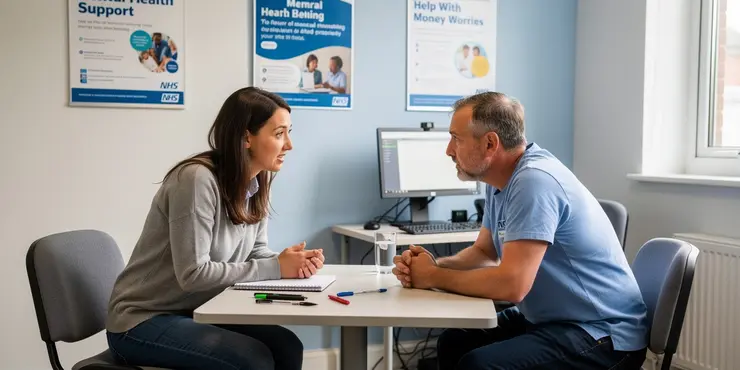
Find Help
More Items From Ergsy search
-

How Rising Living Costs Are Impacting Family Wellbeing
Relevance: 100%
-
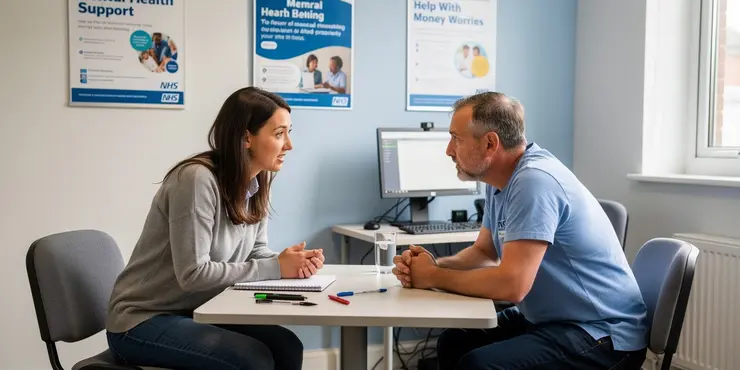
Essential Tips for Mental Health and Well-Being Amidst Rising Living Costs
Relevance: 97%
-
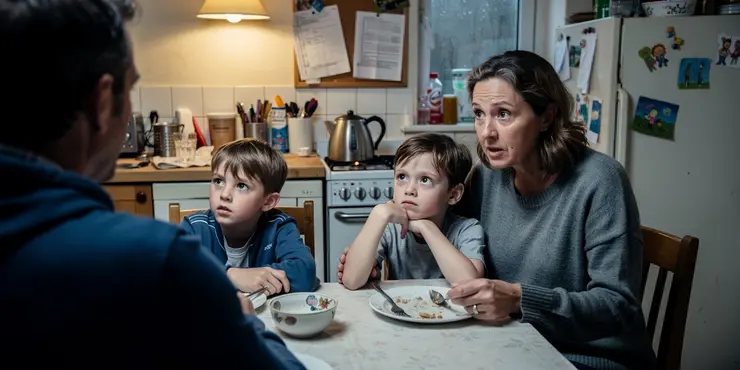
Impact of Rising Living Costs on Family Health
Relevance: 92%
-

Mental Health Impact of Cost of Living Crisis and Support Resources
Relevance: 78%
-
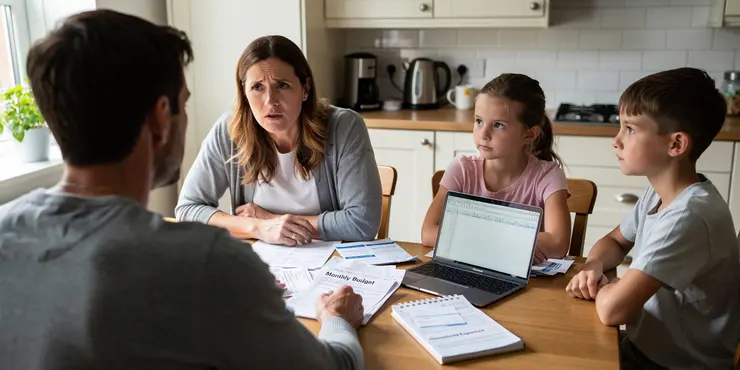
Understanding the Impact of Rising Living Costs on Family Welfare
Relevance: 72%
-

Impact of Cost of Living on UK Communities
Relevance: 63%
-

Charities Warn of Food Insecurity Amidst Rising Cost of Living
Relevance: 62%
-
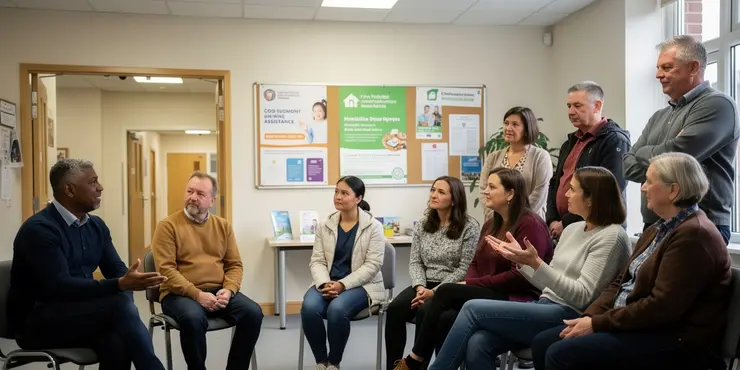
Addressing the Rising Cost of Living: Community Support and Resources
Relevance: 60%
-

Rising Cost of Living: How Families Can Cope
Relevance: 59%
-

Are UK's Post-Pandemic Work Habits Harming Mental Wellbeing?
Relevance: 54%
-

Are UK's Post-Pandemic Work Habits Harming Mental Wellbeing?
Relevance: 54%
-

Impact of Rising Energy Costs on Family Budgets
Relevance: 53%
-

Financial Support for Families Amid Rising Cost of Living
Relevance: 52%
-

Accessing Mental Health Support Resources in the UK
Relevance: 50%
-

Understanding Mental Health in Children
Relevance: 49%
-
What is the £500 cost of living payment?
Relevance: 48%
-

Is the £500 cost of living payment taxable?
Relevance: 47%
-

Advancements in Mental Health Resources for Families
Relevance: 47%
-

Can gut health affect mental health as one ages?
Relevance: 47%
-
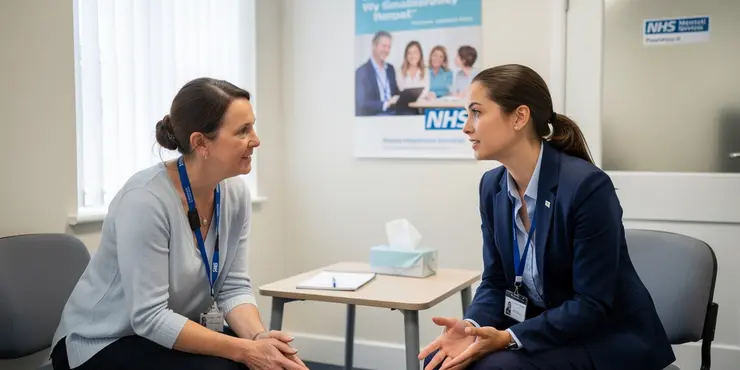
Mental Health Support Services in the UK
Relevance: 47%
-
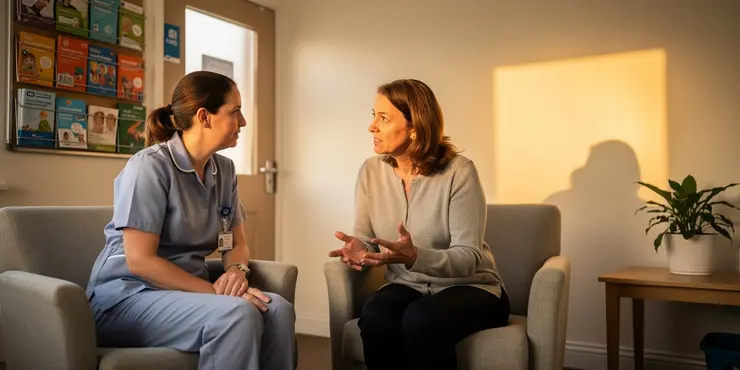
Mental Health Support Resources in the UK
Relevance: 46%
-
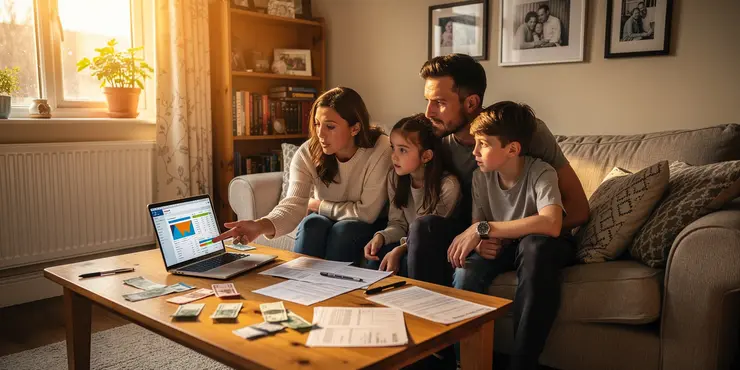
Is the £500 cost of living payment a one-time payment?
Relevance: 46%
-

Mental Health Resources for Families
Relevance: 46%
-

What is the £500 cost of living payment?
Relevance: 46%
-
Is there a deadline to apply for the £500 cost of living payment?
Relevance: 45%
-
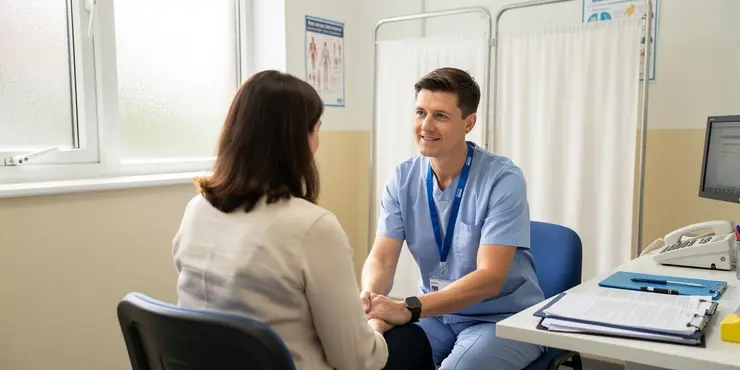
Is the £500 cost of living payment taxable?
Relevance: 45%
-
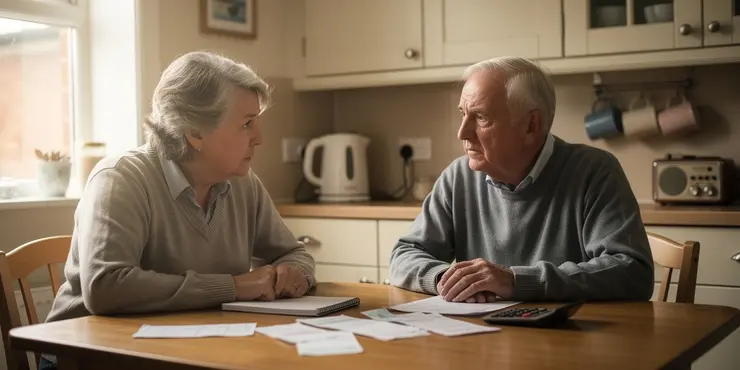
Are pensioners eligible for the £500 cost of living payment?
Relevance: 44%
-
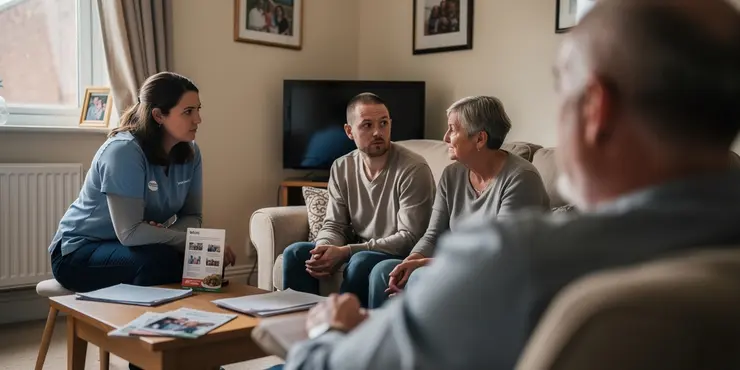
Addressing the Cost of Living Crisis: Community Support and Resources
Relevance: 43%
-

Navigating Mental Health Services for Children and Adolescents
Relevance: 43%
-

Mental Health Support for Families: Resources and Helplines
Relevance: 43%
-
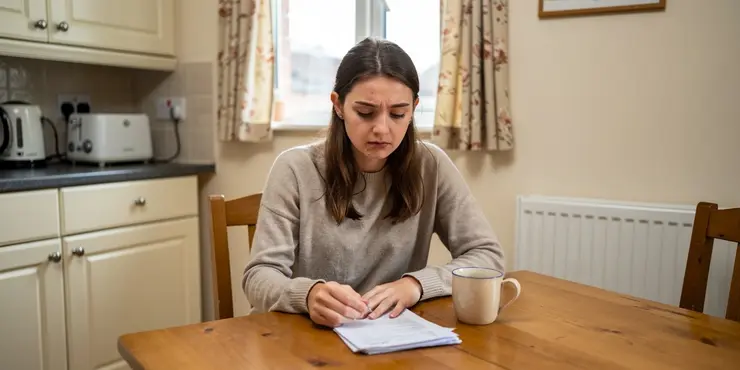
Will the £500 cost of living payment affect my benefits?
Relevance: 43%
-

What mental health resources are available for seniors?
Relevance: 43%
-

Mental Health Support Resources for Families
Relevance: 43%
-

Is the £500 cost of living payment a one-time payment?
Relevance: 42%
-
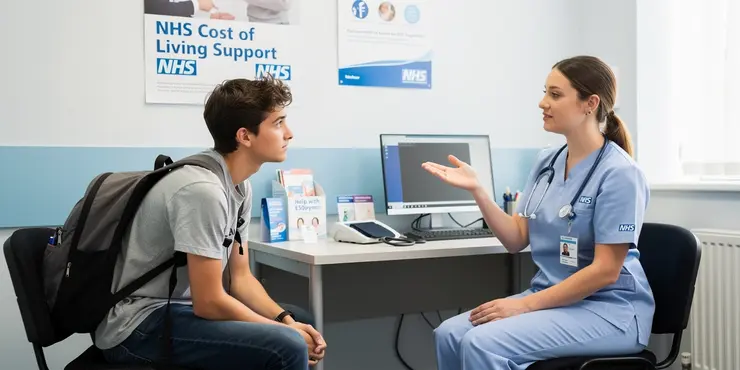
Can students receive the £500 cost of living payment?
Relevance: 42%
-

Support Services for Mental Health Amid Economic Uncertainty
Relevance: 42%
-

Staying Active: National Health Campaigns Promoting Physical Well-being
Relevance: 42%
-

How does sugar impact mental health?
Relevance: 42%
-
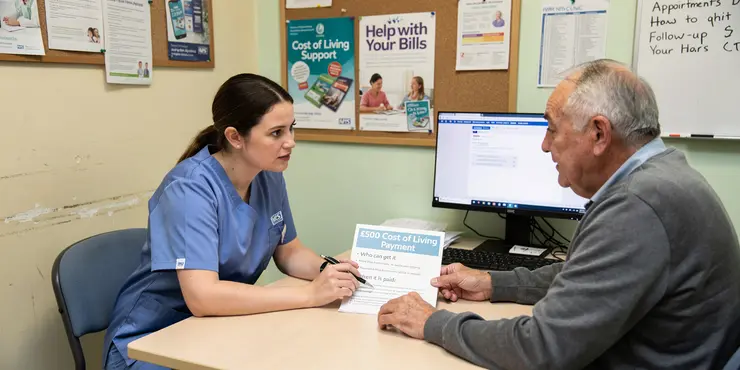
When will I receive the £500 cost of living payment?
Relevance: 42%
-

Mental Health Support for Families: Resources and Strategies
Relevance: 42%
Essential Tips for Mental Health and Well-Being Amidst Rising Living Costs
Understand Your Financial Situation
One of the first steps in managing the stress associated with rising living costs is to have a clear understanding of your financial situation. Take the time to track your income, expenses, and any debt you may have. By creating a detailed budget, you can identify areas where you can cut back and save money. Websites like Money Advice Service offer free tools and calculators to help you get started. Understanding your financial picture can alleviate some of the anxiety associated with uncertainty and help you take control of your situation.
Maintain a Healthy Lifestyle
Physical health and mental well-being are closely interconnected. It is important to maintain a balanced diet, get regular exercise, and have adequate sleep. Exercise releases endorphins, which can help alleviate stress and improve your mood. Even simple activities like walking in a park or practicing yoga at home can be effective. Eating nutritious meals doesn't have to be expensive; look for budget-friendly recipes that use affordable, healthy ingredients.
Seek Social Support
Social connections can play a critical role in maintaining mental health. Make time to talk with friends and family members, even if it's just a quick phone call or video chat. Share your concerns and listen to theirs. Communities often have local groups or online forums where you can meet others facing similar challenges. Being part of a supportive network can reduce feelings of isolation and offer practical advice and encouragement.
Practice Mindfulness and Relaxation Techniques
In times of financial stress, it is easy to become overwhelmed by worry. Practices such as mindfulness, meditation, and deep-breathing exercises can help you stay grounded and manage anxiety. Apps like Calm and Headspace offer guided sessions specifically designed to reduce stress. Incorporate these practices into your daily routine to build resilience against financial pressures.
Seek Professional Help When Needed
If you find that financial stress is severely impacting your mental health, do not hesitate to seek professional help. Consult a GP, who can refer you to mental health services such as counselling or therapy. Organizations like Mind and Samaritans offer free support and resources. Addressing mental health concerns with the help of a professional can provide coping strategies and support tailored to your specific needs.
Stay Informed but Limit Media Consumption
While it is important to stay informed about economic changes and financial news, excessive media consumption can exacerbate stress. Set limits on how much time you spend reading or watching news about financial issues. Curate your news sources to focus on constructive and balanced information rather than sensationalized reporting. Give yourself permission to take breaks from media to focus on activities that bring you joy and relaxation.
Plan for the Future
Even if your financial situation is currently challenging, setting goals and planning for the future can provide a sense of purpose and motivation. Consider consulting a financial advisor for advice on managing debt, saving money, and planning for long-term financial health. Having a roadmap for the future can create a sense of hope and reduce anxiety about the uncertainties associated with rising living costs.
Important Tips for Staying Happy and Healthy When Prices Go Up
Know Your Money Situation
Start by understanding how much money you have and where it goes. Write down how much money you get, what you spend it on, and if you owe any money. This is called making a budget. A budget can help you see where you can spend less and save more. There are free tools online, like Money Advice Service, that can help you. Knowing your money situation can make you feel less worried.
Keep Your Body Healthy
Staying healthy helps your mind feel good too. Try to eat good food, exercise, and sleep well. Exercise, like walking or doing yoga, can make you feel happier. You don’t have to spend a lot to eat well; look for cheap and healthy recipes.
Talk to Friends and Family
Being around friends and family can help you feel better. Talk to them, even if it’s just on the phone or video. Share your worries and listen to theirs. Join a group or chat online with others who understand what you’re going through. You won’t feel alone and they can give you tips and support.
Try Relaxing Activities
Feeling worried about money is normal. Doing things like deep breathing or meditation can help you calm down. Apps like Calm and Headspace have easy sessions to help you relax. Try to do these activities every day to feel better.
Ask for Help if You Need It
If money stress is making you very upset, it's okay to ask for help. Talk to a doctor who can guide you to a counselor or therapist. Groups like Mind and Samaritans offer free help. Getting support can help you feel better and learn new ways to deal with stress.
Stay Updated but Avoid Too Much News
It's good to know what's happening with money and prices, but don't watch or read too much news as it can make you worried. Choose news that is helpful and not too scary. Remember, it’s okay to take a break from the news and do things you enjoy.
Think About Your Future
Even if money is tight now, setting goals can help you feel hopeful. A financial advisor can help you plan how to save and manage money better. This can make you feel more secure about the future even when costs are rising.
Frequently Asked Questions
How can I manage stress caused by rising living costs?
Practice mindfulness, take regular breaks, and engage in physical activities to manage stress.
What are some affordable ways to improve my mental health?
Walking in nature, practicing yoga at home, and connecting with loved ones are affordable ways to boost mental health.
How can I talk to my children about financial difficulties?
Be honest yet reassuring, simplify explanations, and involve them in budgeting tasks to teach them about financial management.
What UK-based resources are available for mental health support?
Resources include NHS mental health services, Mind, Samaritans, and local council support programs.
How can I budget more effectively to reduce financial stress?
Track your spending, create a monthly budget, and prioritise essential expenses to manage your finances better.
What are some free or low-cost activities to keep my mind engaged?
Reading, attending community events, volunteering, and exploring hobbies like drawing or writing are great options.
How can I stay connected with friends and family on a budget?
Utilise free communication tools like social media and video calls, and organise potluck gatherings to cut costs.
What are practical steps to avoid feeling overwhelmed by financial pressures?
Break down tasks into manageable steps, seek professional advice, and set realistic short-term and long-term goals.
Are there any government assistance programs for people struggling financially?
Yes, programs like Universal Credit, Housing Benefit, and local council tax support are available to help those in need.
How can I maintain a healthy diet on a tight budget?
Plan meals, buy in bulk, use price comparison apps, and focus on affordable, nutritious staples like vegetables, grains, and beans.
What steps can I take if I feel my mental health is deteriorating due to financial strain?
Reach out to mental health professionals, talk to friends or family, and consider support groups or helplines for guidance.
How can I find affordable therapy or counselling services in the UK?
Check with your GP for referrals, explore NHS mental health services, and look into charities that offer free or low-cost counselling.
What are some simple relaxation techniques I can practice daily?
Deep breathing exercises, progressive muscle relaxation, meditation, and guided imagery are effective relaxation techniques.
How can I ensure my home environment supports my well-being?
Keep your space clean and organized, create a quiet area for relaxation, and use natural light whenever possible.
What financial advice services are available for free in the UK?
Organisations like Citizens Advice, StepChange Debt Charity, and the Money Advice Service offer free financial advice.
How can I handle stress from higher living costs?
Living costs mean how much money you need for things like food, home, and clothes.
When these costs go up, some people feel worried or stressed. Here is how you can feel better:
- Talk to someone: Share your feelings with a friend or family member. It can help you feel better.
- Make a plan: Write down what you spend money on. This can help you see where you can save.
- Relax: Take deep breaths or listen to calming music. This can help you feel calm.
- Ask for help: Look for community centers or groups that can help with money problems.
Try to stay calm by paying attention to your breathing and the world around you. Take small breaks often and move around. This will help you feel less stressed.
How can I feel better without spending a lot of money?
Going for a walk outside, doing yoga at home, and talking with friends or family can help you feel happier. These activities don't cost much.
How do I talk to my kids about money problems?
Talking about money can be hard, but it is important. Here are some easy tips:
1. Be Honest: Tell your kids about money problems using simple words. Say things like "We need to save money right now."
2. Be Calm: Talk in a calm voice so they don't feel scared.
3. Listen: Let your kids ask questions. Listen to what they say.
4. Use Tools: You can use pictures or stories to help explain.
5. Reassure Them: Tell them it's okay and you are working to make things better.
If you find it hard, you can use stories or picture books about money.
Be honest and kind. Explain things in a simple way. Let them help with money tasks to teach them about looking after money.
What help can people in the UK get for mental health?
Are you feeling sad, worried, or upset? There are places in the UK that can help you feel better.
- Talk to Someone: You can call people like Childline or Samaritans. They listen to you.
- Visit a Doctor: Doctors can help you and may tell you about medicines or talking therapies.
- Online Help: You can use websites like Mind or YoungMinds for advice.
It's okay to ask for help. You are not alone. Try using a calm space or breathing exercises to feel better too.
Here are places that can help:
- NHS mental health services
- Mind
- Samaritans
- Local council support programs
How can I plan my money better to feel less worried?
Planning your money helps you feel calm. Here are some ways to do it well:
- Make a list: Write down all the things you spend money on each month.
- Set limits: Decide how much money you can spend on each thing.
- Save a little: Try to put away some money every month for the future or emergencies.
- Use helpful tools: You can use apps or ask someone you trust to help you track your money.
- Check your list often: Look at your list each week to see if you are staying on track.
These steps can help you feel better about money.
Keep track of what you spend money on. Make a plan each month for your money, called a budget. Spend money on important things first. This can help you use your money better.
What fun things can I do for free or cheap to keep my mind busy?
Here are some ideas to help keep your mind active:
- Read books: Visit a library to borrow books for free.
- Play puzzles: Try jigsaw puzzles, crosswords, or Sudoku.
- Learn something new: Watch free online videos to learn about science, art, or other subjects.
- Write a story: Use your imagination to create a fun story.
- Start a journal: Write about your day and how you feel.
- Do a craft: Make something with things you have at home, like paper or fabric.
- Go for a walk: Look for interesting things outside, like flowers or birds.
These activities can help make your brain stronger and give you fun things to do!
Good things to do are:
- Reading books
- Going to local events
- Helping others as a volunteer
- Trying new hobbies like drawing or writing
It's fun to try new things!
Using tools like audiobooks can help if reading is hard.
Joining groups with others who like the same things can also be fun.
How can I talk to friends and family without spending much money?
Use free tools to talk to people, like Facebook and video calls. You can also plan potluck parties where everyone brings a dish to share. This helps save money.
How can I stay calm about money worries?
Break big tasks into small steps. Ask a professional for help. Set goals you can reach soon and later.
Can the government help people who have money problems?
Yes, there are programs to help people who need money. These programs include Universal Credit, Housing Benefit, and help with council tax.
How can I eat healthy food without spending too much money?
Eating good food doesn't have to be expensive! Here are some tips:
- Plan your meals: Write down what you will eat each day. This helps avoid buying extra food.
- Buy in bulk: Sometimes, buying a lot of something at once can be cheaper.
- Choose store brands: They are usually cheaper but still taste good.
- Use coupons: Look for coupons in newspapers or online to save money.
- Eat more fruits and vegetables: They are healthy and can be cheaper than snacks like chips.
Try a shopping list app to help you remember what to buy. Ask a friend or family member to help with meal planning if you need support.
Make a plan for meals. Buy things in big amounts. Use apps to compare prices. Buy healthy and cheap foods like veggies, grains, and beans.
What can I do if money problems make me feel bad or sad?
Here are some things you can try to help you feel better:
- Tell someone you trust, like a friend or family member, how you feel.
- Write down your feelings in a journal to help make sense of them.
- Try breathing exercises or listening to calming music.
- Spend time outside if you can, like walking in a park.
- Use apps that help with feeling calm, like meditation apps.
- Think about talking to a counselor or therapist.
- Make a simple budget to see where you can save money.
- Look for free or low-cost support groups near you.
Ask for help from a doctor or nurse who knows about feelings. Talk to your friends or family. You can also join a group or call a helpline for support.
How do I find cheap therapy or someone to talk to in the UK?
Ask your doctor to help you find someone to talk to. You can also look at NHS mental health services for help. Some charities offer free or cheap counselling, so check those too.
How can I relax every day?
Here are some easy ways to help you relax:
- Breathe Deeply: Take slow, deep breaths in and out.
- Stretch: Move your body gently to feel better.
- Listen to Calm Music: Play soft music you like.
- Go for a Walk: Walk outside and enjoy nature.
- Picture a Happy Place: Close your eyes and imagine somewhere nice.
Try these every day. Ask a friend or use a timer to help you remember.
Deep breathing, relaxing your muscles bit by bit, meditation, and imagining happy places can help you feel calm.
How can I make sure my home is a happy place?
Here are some ways to make your home a happy and calm place:
- Keep it tidy: Clean up and put things away. It helps you feel calm.
- Let in light: Open the curtains for sunshine. It makes you feel good.
- Add plants or flowers: They can make you feel happier.
- Play nice music: Listen to music you like. It can make you feel better.
- Use soft colors: Colors like blue or green can make you feel calm.
Try using a picture chart to remember these tips. You can also set reminders on your phone to help you keep your home nice.
Keep your room tidy and neat. Make a quiet place where you can relax. Try to use sunlight if you can.
What free money help can you get in the UK?
If you need advice about money, there are people who can help you for free in the UK. Here is how you can find them:
- Citizens Advice Bureau: They can help you understand your money and what to do with it. You can find them in many towns.
- MoneyHelper: This is a website that gives you lots of tips about money. You can call them for free too.
- StepChange Debt Charity: If you have problems with debt, they can help you make a plan.
- National Debtline: They can talk to you on the phone and give you advice if you owe money.
Remember, it's okay to ask for help, and there are friendly people who can talk to you.
There are places that can help with money problems. You can talk to Citizens Advice, StepChange Debt Charity, or the Money Advice Service. They will help you for free.
Useful Links
This website offers general information and is not a substitute for professional advice.
Always seek guidance from qualified professionals.
If you have any medical concerns or need urgent help, contact a healthcare professional or emergency services immediately.
Some of this content was generated with AI assistance. We’ve done our best to keep it accurate, helpful, and human-friendly.
- Ergsy carfully checks the information in the videos we provide here.
- Videos shown by Youtube after a video has completed, have NOT been reviewed by ERGSY.
- To view, click the arrow in centre of video.
- Most of the videos you find here will have subtitles and/or closed captions available.
- You may need to turn these on, and choose your preferred language.
- Go to the video you'd like to watch.
- If closed captions (CC) are available, settings will be visible on the bottom right of the video player.
- To turn on Captions, click settings .
- To turn off Captions, click settings again.
More Items From Ergsy search
-

How Rising Living Costs Are Impacting Family Wellbeing
Relevance: 100%
-

Essential Tips for Mental Health and Well-Being Amidst Rising Living Costs
Relevance: 97%
-

Impact of Rising Living Costs on Family Health
Relevance: 92%
-

Mental Health Impact of Cost of Living Crisis and Support Resources
Relevance: 78%
-

Understanding the Impact of Rising Living Costs on Family Welfare
Relevance: 72%
-

Impact of Cost of Living on UK Communities
Relevance: 63%
-

Charities Warn of Food Insecurity Amidst Rising Cost of Living
Relevance: 62%
-

Addressing the Rising Cost of Living: Community Support and Resources
Relevance: 60%
-

Rising Cost of Living: How Families Can Cope
Relevance: 59%
-

Are UK's Post-Pandemic Work Habits Harming Mental Wellbeing?
Relevance: 54%
-

Are UK's Post-Pandemic Work Habits Harming Mental Wellbeing?
Relevance: 54%
-

Impact of Rising Energy Costs on Family Budgets
Relevance: 53%
-

Financial Support for Families Amid Rising Cost of Living
Relevance: 52%
-

Accessing Mental Health Support Resources in the UK
Relevance: 50%
-

Understanding Mental Health in Children
Relevance: 49%
-
What is the £500 cost of living payment?
Relevance: 48%
-

Is the £500 cost of living payment taxable?
Relevance: 47%
-

Advancements in Mental Health Resources for Families
Relevance: 47%
-

Can gut health affect mental health as one ages?
Relevance: 47%
-

Mental Health Support Services in the UK
Relevance: 47%
-

Mental Health Support Resources in the UK
Relevance: 46%
-

Is the £500 cost of living payment a one-time payment?
Relevance: 46%
-

Mental Health Resources for Families
Relevance: 46%
-

What is the £500 cost of living payment?
Relevance: 46%
-
Is there a deadline to apply for the £500 cost of living payment?
Relevance: 45%
-

Is the £500 cost of living payment taxable?
Relevance: 45%
-

Are pensioners eligible for the £500 cost of living payment?
Relevance: 44%
-

Addressing the Cost of Living Crisis: Community Support and Resources
Relevance: 43%
-

Navigating Mental Health Services for Children and Adolescents
Relevance: 43%
-

Mental Health Support for Families: Resources and Helplines
Relevance: 43%
-

Will the £500 cost of living payment affect my benefits?
Relevance: 43%
-

What mental health resources are available for seniors?
Relevance: 43%
-

Mental Health Support Resources for Families
Relevance: 43%
-

Is the £500 cost of living payment a one-time payment?
Relevance: 42%
-

Can students receive the £500 cost of living payment?
Relevance: 42%
-

Support Services for Mental Health Amid Economic Uncertainty
Relevance: 42%
-

Staying Active: National Health Campaigns Promoting Physical Well-being
Relevance: 42%
-

How does sugar impact mental health?
Relevance: 42%
-

When will I receive the £500 cost of living payment?
Relevance: 42%
-

Mental Health Support for Families: Resources and Strategies
Relevance: 42%


